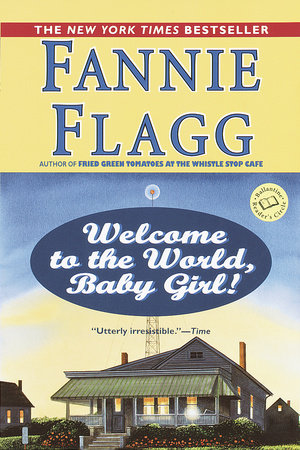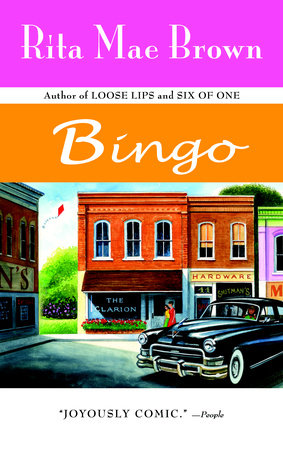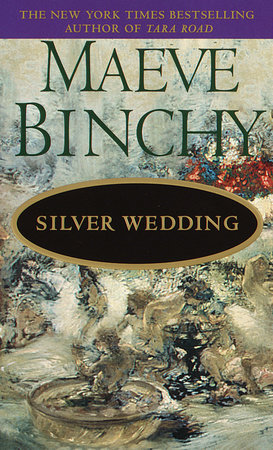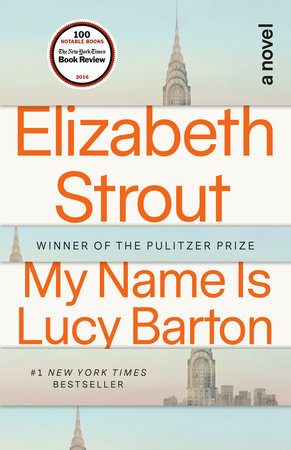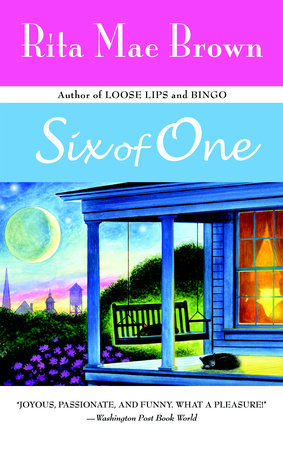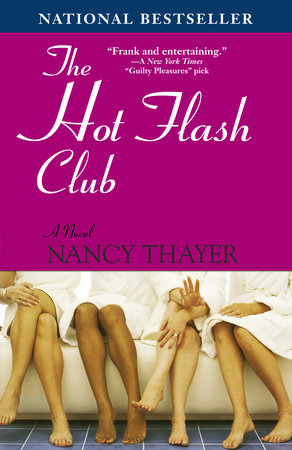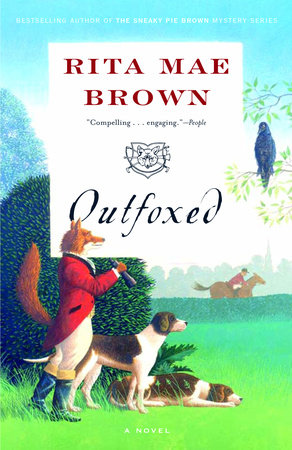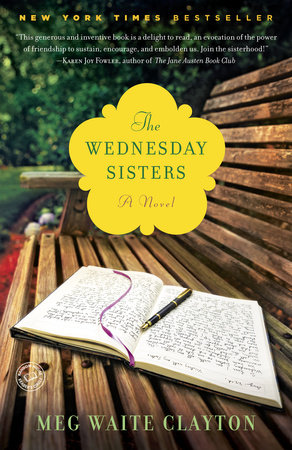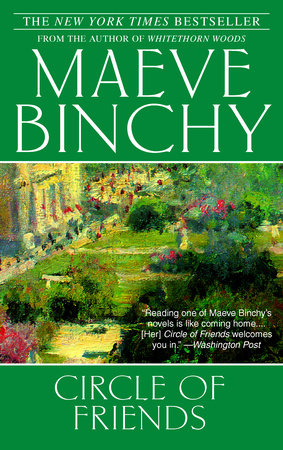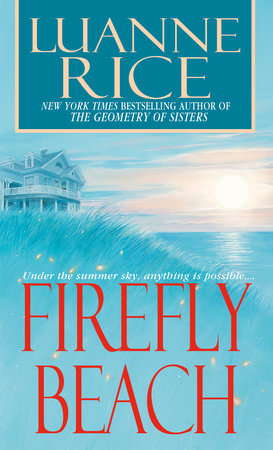Q: One of the things that struck me when first reading Baby Girl were the settings — Missouri and New York and to a lesser extent, Chicago and Washington, D.C. You hadn’t forsaken the South entirely-thank God for Sookie-but what did you have in mind? Were you bored by the Southern scene and did you not want to be typecast as a "southern writer"? Or did you want to show that characters like yours can exist anywhere?
FF: I would not mind at all I were to be called a southern writer, I’d be flattered, as a matter of fact. I am from Alabama, after all, and I still live there a great deal of the time, but what may be closer to the truth is that I’m an American writer who writes about what I know best: middle class America. This is my family’s background. I have never been extremely poor or extremely rich although I would not mind a bit being extremely rich. But as I have traveled around the country, I’ve noticed that class or type defines a person far more accurately than a region.
I’ve found middle class people, no matter where they live, tend to dress a certain way, think a certain way, just as the very rich are pretty much the same all across the country. For instance, my character’s idea of a dream vacation, whether they live in Maine or Tennessee, might not be Paris or Rome first but a trip cross-country in a nice Winnebago RV to the Mall of Americas in Minnesota. Their idea of fine dining, driving out of St. Paul or Stillwater, might include stops at a few Crackerbarrel restaurants along the way. Such a trip, by the way sounds pretty good to me.
I picked Missouri because it’s in the middle of the heartland of America, with all that such a phrase denotes. And what I admire most about this nation is its heart. We have been and still are the most generous country. Even though other countries to whom we’ve given lives and millions seem to hate the idea, we still give.
Q: You and big cities . . . You’ve lived in them. You’re read in them. In this novel, Manhattan seems like the root of all evil, especially in that phantasmagoric scene later in the book where one of the scurrilous scandal mongers gets swept away in the roar of a rushing sewer. Yet the two psychiatrists are fine people.
FF: Again, New York is just a metaphor for a certain type of person, or mind-set, or view of the world. Personally, I love New York. As you say, I’ve lived there for about ten years. What I was trying to say is that large cities, like say New York and Los Angeles, etc., can change a person. What I don’t like is the way that a city, with the struggle to survive, the rat race and the competition, too often promotes a jaded, cynical world view, a pessimistic, often suspicious outlook. Unfortunately, those who hold to this narrow view persist in regarding the rest of the country as stupid. They interpret manners for weakness, enthusiasm is suspect, and ethics are naivete.
This is not true for everyone. Not to sound trite but some of my best friends are in New York. On the other hand, I’ve come across more than a few characters like Ira Wallace, who has nothing but disdain and contempt for people unlike himself, those from "the sticks." Then there’s a cultural difference, too. I’ve read big city reviews of books, movies, plays that use terms like "refreshingly meanspirited," or "delightfully vicious" as though they were accolades. Somehow, I don’t think many people elsewhere consider these terms flattering or complimentary.
But personally, having said this, I must confess that I did thoroughly enjoy flushing one of my most evil characters down the sewer, so I suppose I’m as mean-spirited as the worst of them.
Q: But I do sense a certain ambiguity in your attitude toward city life, the careers, the phony glamour and the genuine glitz, the greed, ambition, and such? Country mouse, city mouse — don’t you live a bit in both worlds? And bicoastally, at that.
FF: Yes, I’m sure you do. We all can be lured and seduced. The ambiguity is in the question that Dena Nordstom, clearly on the verge of achieving everything she thinks she wants, has to ask herself: what would you do to get it? What are you willing to give up? Are we willing to hurt others to help ourselves? It all comes down to such questions.
Eventually, success comes to mean different things to different people. The only constant is that we all want to be happy.
Granted, it’s sometimes doubly difficult to be successful and yet remain your own person. But it happens. There is a myth counter to the success-at-all-costs myth that successful, famous, rich people are not happy-or ethical. Some of the happiest and most generous people I know seem to be prosperous, famous, and by any standard, successful. Oprah Winfrey and Rosie O’Donnell are two that come to mind.
Q: Your characters. Clearly, you love most of them. You see the quirkiness and the humor, the humanity and the capacity for love in many "ordinary" people. When you refer to one or another, I can see the light in your eyes and you’ll ask, "Yes, isn’t she hilarious?" as if she were in the next room and has a life of her own. But you never look down on "plain" folks or treat them as types. Do they live for you? Where do they come from?
FF: I confess I do love them and wish I could be more like them. They do things and say things not seeking any reward but because they are genuinely good people without guile or hidden agendas.
Almost all of my characters are based on people I have known. Norma and Macky Warren are much like two of my great friends, named Norma and Macky. I had a real-life Aunt Elner and both Sookie and her mother are based on my best friend in high school (and her mother) who still is, thank heaven, one of the silliest girls I know.
No, I never look down on them; in fact, if anything, I look up. Aunt Elner says it best when describing her niece, Norma, as a woman who seems flighty but, when the chips are down, she comes through. You can depend on her.
Q: How about your celebrities? When encountering the female psychiatrist in the wheelchair or the grand old man of broadcasting, I thought I could see the faint outlines of a Barbara Jordan or a Walter Cronkite. Did I?
FF: Howard was based on four or five newscasters — Edward R. Murrow, Howard K. Smith, Harry Reasoner, and so forth. As for Elizabeth Diggers, I must admit to having met Barbara Jordan and she did come to mind when writing Dr. Diggers.
Q: I take it that these are not meant as exact transcriptions from life but rather as impressions of individuals who have impressed you mightily.
FF: True. Dr. DeBakey is based on our meeting and my admiration for the famous heart surgeon and the character was so much him that I couldn’t call the man anything else in the book except Dr. DeBakey. He was very pleased and promised to give me a deal on a heart transplant.
Q: The visit with Tennessee Williams smacked of reality, too.
FF: Yes, I met him near the end of his life. I was in New York doing a play, Come Back to the Five and Dime, Jimmy Dean, Jimmy Dean. It was with Barbara Loden, who was married to Elia Kazan. They both knew that The Glass Menagerie was my favorite play and that Mr. Williams was my idol so they invited me to attend the opening night party for his new play. It happened to be his birthday, as well.
It was late when we arrived and the early reviews of his play had just been handed to him. I will never forget the sight of him sitting alone in the middle of the room, dazed, and hurt by the unusually cruel notices. It was not enough that the reviewers hated the play but they went on to attack to him personally, calling him a has-been, all washed up, over the hill, past his prime. It seemed as if the reviewers made a pact to kick this man when he was down.
The look on his face that night . . . devastating to see this great talent so hurt, so destroyed.
It was then that I realized how vulnerable artists are and understood better how much courage it takes to continue putting themselves at risk. Obviously, artists are sensitive; they have to be in order to be artists. I often wondered if those reviewers knew or cared how it might affect this one.
My heart broke for him. He never wrote another play.
Q: In your genuinely comic novels, there is a deep strain of seriousness, perhaps especially toward the black-white fissure in American life. And toward ethnic and cultural differences. Toward the lonely child and the distant grown-up world; the aging and the middle-aged. And toward the conflict between much of media-ridden America and the rest of real-life America. You’re not the beautiful clown yearning to play Hamlet; you seem to feel these matters deeply. Do they haunt, even motivate your fiction?
FF: Yes, I am completely baffled and saddened when any living thing is treated unfairly or cruelly. The lack of compassion many of us have for each other’s feelings worries me. Life is hard enough without a willingness to see the other side or to judge people for what they are rather than who they are. We need to get rid of the labels. It’s not easy. I’m guilty of pre-judging people by groups. I find that if I look at each person, one at a time, I’m surprised by how strikingly individual they are and at the same time how alike we are.
As to the conflict between the media’s views of life and day-to-day American life, I am tremendously concerned about the long-term effects of constant negativity and violence that we, including kids, are subject to every day. In movies, TV, music, newspapers, criminals are made heroes, the government, police, military, anyone in authority, is too often depicted as corrupt or involved in some evil conspiracy.
Look, I’m not blind. I know that this kind of thing does happen. But not as often as the purveyors of news and so-called drama would have us believe. There has to be balance. Honest people live here; they are, in fact, the majority.
Who do kids have to feel loyalty to, what do they have to look forward to, who can they trust? Life as it’s being represented to them does not hold much magic. Most of us grew up with Walt Disney and Father Knows Best; today they are all being shown the dark side of life and the worst side of human nature.
I also worry about what seems to be a serious lack of personal responsibility in the differing approaches to truth of sensationalism. I have seen the results of such heedless "journalism" up close and personal. An actor I knew was ill. We, his family, friends, and doctors, had decided not to tell him of the seriousness of his condition so that his last few weeks would be happy ones. When he saw his face on a tabloid’s first page, along with his stolen hospital report, that cover erased any chance at peace he might have had. His family is convinced that it shortened the little time he had left.
Again, I wonder if the person who stole the report and the one who bought it for a newspaper ever thought about the effects of their actions on this seriously ill man and his family and friends. Or did they just go on to another "story"? What kind of person betrays and hurts another human being for money?
Why has this kind of invasion of privacy become so highly rewarded? When did such episodes become so much an accepted part of our culture that these forms of tabloid journalism are sold in racks in the places where we buy food for our families?
Yes, these things do haunt me and are one of the very reasons I write. I am trying to find answers. To understand why such things go on, in every medium, and why we are so attracted to them.
Q: What were the other ideas behind the novel?
FF: I suppose the other main idea in this novel is change. I wanted to show how it is possible for a person who has strong beliefs about the one path in life to change direction. Dena, when the book begins, is convinced that the way to be happy is to be successful in her career. People living in small towns, like Norma, Macky, Aunt Elner, and even in her way, Sookie, were dismissed or thought of as living insignificant or unimportant lives. But because of Dena’s illness, she gets a new chance to get to know them. Slowly, she begins to reexamine her own ideas of happiness and where success lies. She comes to realize that these not-too-smart folks, or simple and uncomplicated and less worldly people, as she once thought of them, have a lot to teach her. In fact, she finds out that in many ways they are much wiser about life than she is. They knew from the start, no matter how starstruck they seemed, that what really matters in life is to be happy and at peace with yourself.
I love the idea that we all have the chance to change our thinking. Change our lives. Change things for the better.
Q: "And the news was mostly good." Is that how you see the world?
FF: Well, you’ve got me there. The truth is that even with all my concerns, I am convinced that the news is good, in many ways of getting better all the time. With every one of our seeming steps backward, we take three giant steps forward. I am excited, for example, by medical and scientific progress. I fully expect to be cloned so I can sit down and give myself a good talking to.
And if that happens, I will remind myself never to doubt what I know and believe in my heart: that given half a chance, human beings are magnificent creatures, capable of many wonders. Like Aunt Elner, I am a big fan of people and I get such a kick out of watching them. It’s better than a picture show.
We are all in this crazy life together and I wish all of us well. After all, most of my friends and family happen to be people, except for one bird and a mangy old orange cat.
